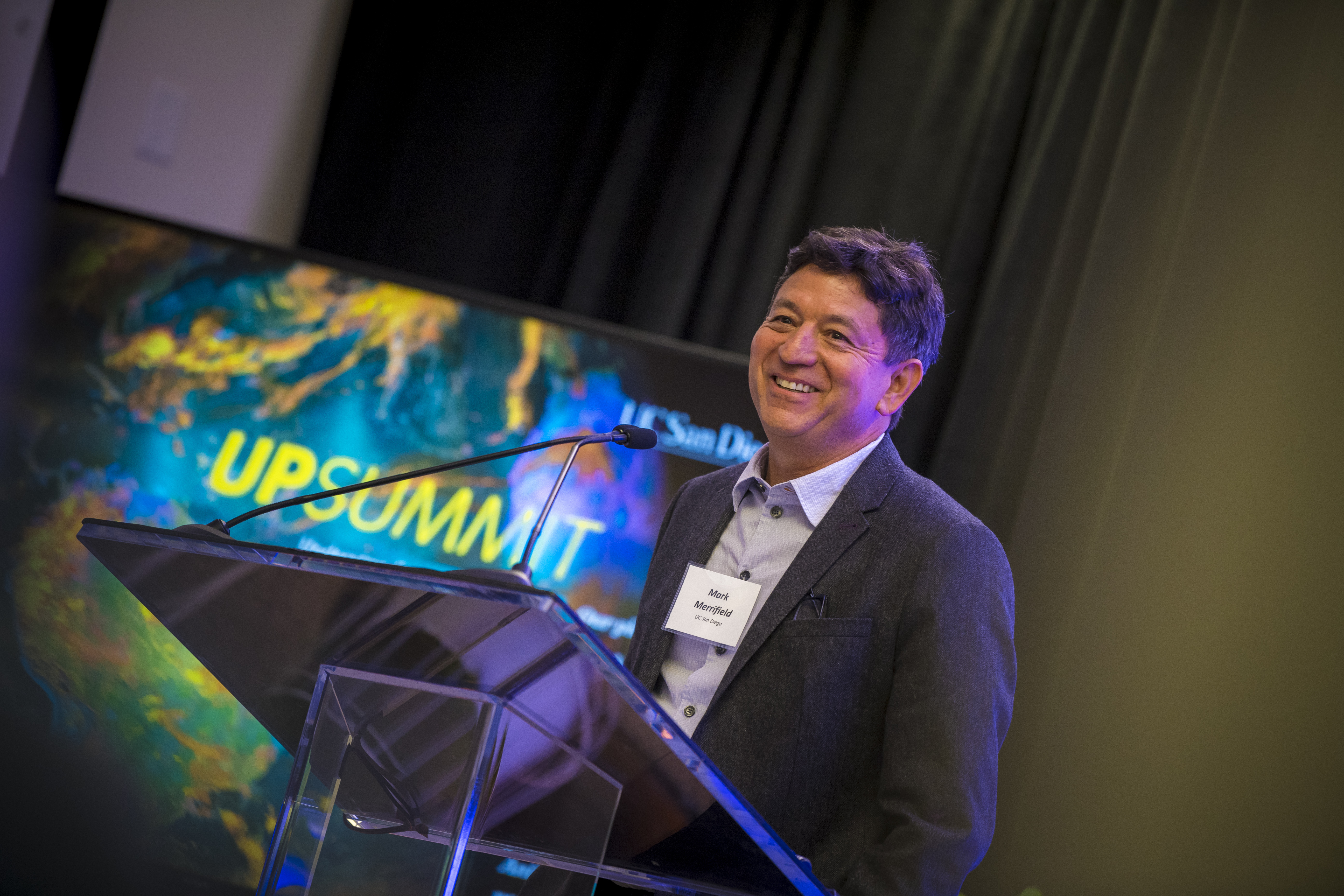CW3E Participates in the UP Summit at UC San Diego
May 20, 2018
CW3E participated in the inaugural UP Summit on May 17, to inspire a dialogue about how UC San Diego researchers are contributing to find solutions to environmental challenges.
This research to understand and protect the planet is a cornerstone of UC San Diego’s strategic research themes identified during the university’s strategic planning process in 2014. This plan identified where UC San Diego has the best experience and most potential for positively impacting society and the environment.
The invite-only audience at the UP Summit was comprised of a group that can take this research and turn it into action—political leaders, elected officials, agency and tribal representatives, non-profit partners and philanthropic supporters.
The summit featured two panel discussions on key issues affecting Southern California. The first was moderated by Mark Merrifield (Picture 1), director of the Center for Climate Change Impacts and Adaptation at Scripps Institution of Oceanography, and addressed extreme weather and atmospheric rivers, which can bring most of California’s water supply in only a few weather events a year, and pollution transport via the oceans and atmosphere. The panelists—coastal oceanographer Sarah Giddings, atmospheric chemist Kim Prather, and project scientist Aneesh Submaranian of the Center for Western Weather and Water Extremes—spoke on how their research is interconnected, and where more research needs to be done to understand complex problems.
Anna Wilson (Picture 2) and Douglas Alden also participated, hosting a table with a weather balloon (radiosonde) and other observational equipment. They talked to attendees about the types of observations that CW3E makes to improve understanding of California’s highly variable precipitation, particularly as applied to atmospheric rivers, and impacts on water supply and flooding.
According to event organizers, the goal of this summit was not just to show off the work that was done, but to foster a dialogue between the researchers and the policy makers. The approximately 100 attendees were given opportunities to network and converse throughout the event. The hope is that by learning more about what the science is capable of and what the community needs are, more solutions can be put into action to protect the planet for future generations.
More information about the summit can be found at thisweek@ucsandiego


